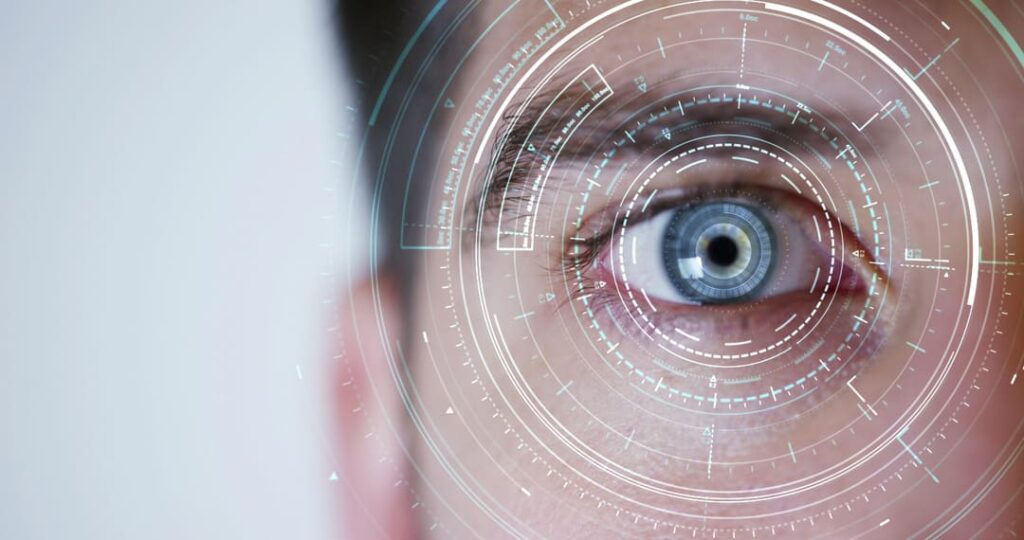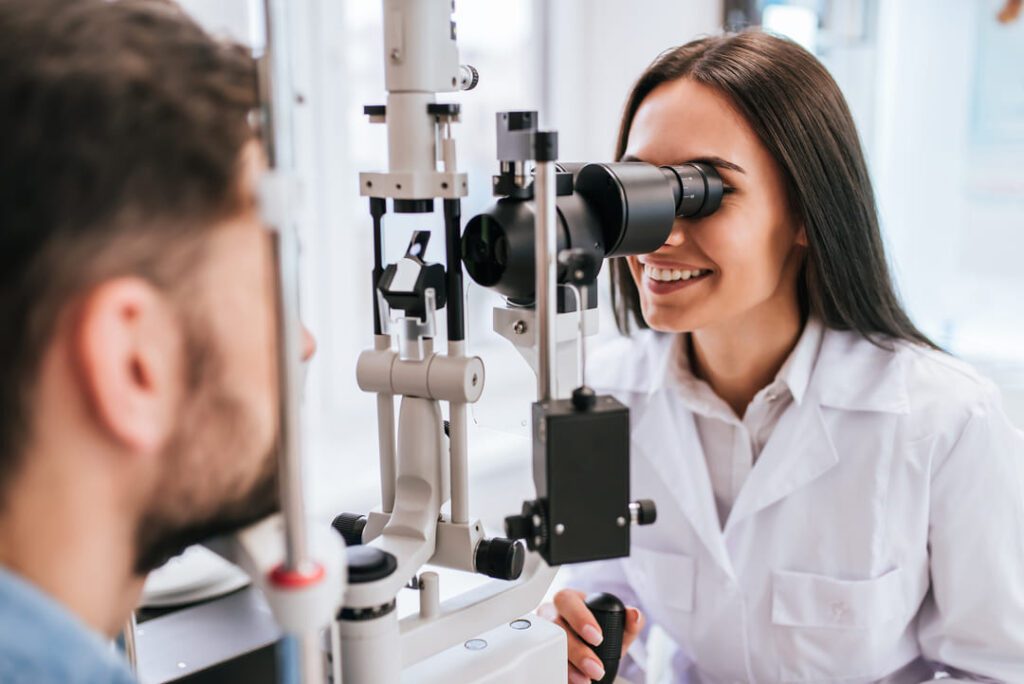Looking for Expert-Level VA Claim Answers?📱Call Us Now! 737-295-2226
Are you a veteran struggling with blurry vision, dry eyes, or other sight-related problems? You may qualify for monthly VA disability compensation—even if your condition seems minor.
In this Insider’s Guide, we break down how the VA rates eye conditions, which vision problems qualify, how to service-connect them, and what kind of compensation you might expect.
Whether you’re dealing with floaters, cataracts, or serious loss of vision, understanding the VA’s process can help you get ALL of the VA compensation and benefits you deserve.
Table of Contents
Summary of Key Points
- VA eye disability ratings range from 0% to 100% based on severity, impact on vision, and treatment frequency—conditions like blindness, dry eye syndrome, and floaters can all qualify.
- Common qualifying eye conditions include glaucoma, cataracts, ptosis, retinal disorders, inflammatory diseases, neurological causes, and vision loss related to systemic conditions (e.g., diabetes, MS, strokes).
- Dry eyes and eye floaters can be rated under related diagnostic codes if they significantly impact daily life or require ongoing treatment.
- Secondary service connection is possible if your eye condition is linked to another service-connected disability (e.g., diabetes leading to diabetic retinopathy).
- To file a VA claim, veterans must provide medical evidence, such as a diagnosis, service records, and possibly a nexus letter linking the condition to military service.

How the VA Rates Eye Conditions
Veterans with diagnosed eye disabilities may be eligible to receive a disability rating from the VA.
The VA rates eye conditions on a scale from 0 to 100, with 100 being the most severe. Rating levels are based on the severity of the condition and its effects on the veteran’s ability to function.
Veterans with eye conditions that cause partial or complete blindness will receive the highest rating. Patients with conditions that only cause minor vision impairment may receive a lower rating.
The VA also considers whether the condition is expected to improve, stay the same, or worsen over time. Rating levels can be changed if a veteran’s condition improves or worsens.
What Eye Problems Qualify for VA Disability?
The following are some of the most frequent visual disabilities for which veterans qualify for disability benefits: loss of one or both eyes, loss of eyelids and lashes and/or eyebrows (ptosis), associated conjunctivitis problems (conjunctivitis), corneal conditions, inflammatory eye disorders, and injuries, glaucoma, cataracts and lens conditions, retinal conditions, neurologic conditions, tumors and neoplasms, and other eye conditions.
Early detection and treatment of eye conditions are essential to preserving veterans’ vision and quality of life.
While many of these conditions cannot be cured, they can often be treated effectively. For example, glasses or contact lenses can improve vision for those with refractive errors.
VA Eye Disability Ratings
When it comes to VA disability ratings for diseases of the eye, the VA uses a simple system:
- They award 10 percent for eye diseases that hinder the veteran to some degree but that only required less than three treatment visits over the last 12 months.
- 20 percent is awarded for eye diseases that hinder the veteran but have required at least three but fewer than five treatment visits over the last 12 months.
- 40 percent is awarded to veterans who required at least five but fewer than seven treatment visits over the last 12 months.
- Finally, veterans who require seven or more treatment visits for one or more eye diseases in 12 months are eligible for 60 percent of the application.
The following notes help the VA make rating determinations under this diagnostic code.
Note (1): For the purposes of evaluation under 38 CFR 4.79, an incapacitating episode is an eye condition severe enough to require a clinic visit to a provider specifically for treatment purposes.
Note (2): Examples of treatment may include but are not limited to: Systemic immunosuppressants or biologic agents; intravitreal or periocular injections; laser treatments; or other surgical interventions.
Note (3): For the purposes of evaluating visual impairment due to the particular condition, refer to 38 CFR 4.75–4.78 and to §4.79, diagnostic codes 6061–6091.
As you can see, the VA has a clear-cut way of determining how much disability compensation you may be eligible for if you suffer from an eye condition.

Dry Eyes VA Rating
Did you know that it is possible to qualify for VA disability for dry eye syndrome? You may be eligible for VA benefits if you suffer from dry eyes.
Dry Eye Syndrome is a common condition that can cause various symptoms, including blurred vision, redness, and itchiness.
While the condition is often manageable with over-the-counter treatments, some veterans may require more aggressive treatment, such as prescription medication or surgery.
To qualify for VA Disability benefits, veterans must provide medical evidence of their condition. It can include physician statements, medical records, and test results.
Although the rating schedule does not contain a specific diagnostic code for dry eye syndrome, as an unlisted condition, it can be rated under a closely related disease or injury that affects the same part of the body with similar symptoms.
Any condition that affects the production of tears (disorders of the lacrimal apparatus) is rated under code 6025. If one eye is affected, it is rated 10%. If both eyes are affected, the condition is rated 20%.
Veterans who cannot work due to their condition may also be eligible for unemployment benefits.
Secondary Service Connection for Eye Conditions
Veterans who develop an eye condition due to military service may be eligible for secondary service connection.
To receive benefits, veterans must :
- Show that they have a current, diagnosed eye condition.
- Provide evidence of an in-service event, injury, or illness during their military service.
- Prove that their current eye condition is related to the in-service event.
When we think about vision problems, we often think about things like nearsightedness or farsightedness. However, several medical conditions can cause secondary vision problems. For example:
- Diabetes can lead to diabetic retinopathy, glaucoma, and cataracts.
- Sarcoidosis can cause optic neuropathy.
- Lyme Disease can cause retinal vasculitis and optic disc edema.
- Cerebrovascular events (strokes) can cause blind spots.
- Thyroid problems can cause double or blurred vision and protruding eyes.
- Multiple sclerosis can cause changes in vision, optic neuritis, and gradual loss of vision.
- Finally, rheumatoid arthritis can cause thinning of the cornea.
If you are experiencing any of these symptoms, you must see a doctor as soon as possible to get the treatment you need.
How to Service-Connect Your Eye Condition
Many conditions can lead to a loss or malfunction of eyesight. If you suffer from any of these conditions, you may be eligible for Service-Connected Compensation from the VA.
To service connect your eye condition, you must submit evidence to the VA showing that your condition is related to your military service.
This evidence can be medical records, eyewitness statements, or service records. In some cases, the VA may also require a nexus letter from a qualified medical professional.
Once you have gathered the necessary evidence, you must file a claim with the VA. The claim process can be completed online, by mail, or in person at your local VA regional office.
VA Disability for Eye Floaters
Eye floaters are those pesky little specks that seem to float around in your field of vision. They can be annoying and distracting; in some cases, they can even interfere with your ability to see clearly.
While eye floaters are generally not painful or harmful, they can nevertheless be a major nuisance. If you’re dealing with eye floaters daily, it’s important to know that you may be eligible for VA disability benefits.
To qualify, you’ll need a letter from your doctor confirming that you suffer from eye floaters. You’ll also need to demonstrate that the condition impacts your ability to work or live a normal life.
You may be eligible for monthly benefits and free healthcare from the VA if you meet these requirements.
Conclusion
Eye conditions can be frustrating, painful, and even disabling—but you don’t have to face them alone.
If your vision problems were caused or worsened by your military service, you may be eligible for VA disability compensation. From dry eye syndrome and cataracts to service-connected vision loss, knowing how to properly document and file your claim is key.
Need expert support with your VA claim for an eye condition? Reach out today—we’re here so you can get all of the VA compensation and benefits you deserve!
(FAQs) Frequently Asked Questions
What is the VA rating for Cataracts?
There are many different types of cataracts, and each can cause a different level of vision impairment. The severity of the symptoms will determine the VA rating for cataracts. For Preoperative, it will be evaluated under the General Rating Formula for Diseases of the Eye. For Postoperative: If a replacement lens is present (pseudophakia), it will be evaluated under the General Rating Formula for Diseases of the Eye. If there is no replacement lens, it will be evaluated based on aphakia (diagnostic code 6029).
The most common type of cataract is age-related, and it usually affects people over the age of 60. These cataracts typically develop slowly and don’t usually cause serious vision problems. However, as they progress, they can eventually lead to blindness. Other types of cataracts, such as diabetic cataracts, can be much more severe and cause vision loss even in young people.
Can you claim eyesight on VA disability?
Veterans with injuries or illnesses impacting their eyesight may be eligible for VA disability benefits. Eye conditions can qualify for VA disability in a few different ways.
- First, if the veteran has 20/200 vision or worse in one eye, they may automatically qualify.
- Additionally, veterans with tunnel vision or complete blindness in one eye may be eligible for benefits.
- Veterans can also qualify if they have glaucoma, cataracts, or another serious eye condition that impacts their quality of life.
To receive benefits, veterans must submit a claim to the VA to prove their service-connected condition.
Does the VA pay for Macular Degeneration?
Macular degeneration is one of the leading causes of blindness and vision impairment in older adults. The condition affects the macula, which is the retina’s center and is responsible for central vision.
While there is no cure for macular degeneration, there are treatments that can help slow its progression and preserve vision.
The VA can cover treatment for service-connected macular degeneration. It includes regular eye exams, medication, and surgery. The VA may also cover assistive devices such as low vision aids and talking books.
Can I claim astigmatism VA disability?
Yes—but only under specific conditions. Astigmatism must significantly affect your corrected vision (20/40 or worse) to qualify for VA disability.
See our full guide: VA rating for astigmatism—explained
Want Expert-Level Support with Your VA Disability Claim? WE GOT YOUR SIX!
How does VA Claims Insider support veterans?
We make the confusing and frustrating VA claim process EASY through our 8-step proprietary system and one-on-one coaching; we’re the VA Claim EXPERTS you can trust, and YOU are never alone in this fight against the VA!
You’ll also receive VA disability expert Brian Reese’s SEM Method Blueprint—a proven formula that has helped over 25,000 veterans win their VA disability claims faster:
Strategy + Education + Medical Evidence = VA Rating and Compensation You Deserve FASTER!
Start today and unlock an exceptional level of service you deserve for serving our country:
- You’ll hear from a VA Claim Expert over email within 15 minutes of signing up today.
- You’ll hear from your Veteran Coach team within 24 hours of all inquiries during normal business days/hours.
- Our terms are clear and simple: If we don’t win, you don’t pay. You have nothing to lose and everything to gain.
Click the red button below to start the process of winning your VA claim right now!
About VA Claims Insider
- VA Claims Insider is the #1 most trusted name in VA disability claims.
- Work directly with a VA claims coach who can educate you to VA claim victory.
- 25,000+ disabled veterans have served in our membership programs since 2016.
- 30% average rating increase for veterans who complete our #1-rated Elite program.
- 4.7/5.0 average rating out of 5,500+ total reviews; over 4,500 5-star reviews.
About the Author

Brian Reese
Brian Reese is a world-renowned VA disability benefits expert and the #1 bestselling author of VA Claim Secrets and You Deserve It. Motivated by his own frustration with the VA claim process, Brian founded VA Claims Insider to help disabled veterans secure their VA disability compensation faster, regardless of their past struggles with the VA. Since 2013, he has positively impacted the lives of over 10 million military, veterans, and their families.
A former active-duty Air Force officer, Brian has extensive experience leading diverse teams in challenging international environments, including a combat tour in Afghanistan in 2011 supporting Operation ENDURING FREEDOM.
Brian is a Distinguished Graduate of Management from the United States Air Force Academy and earned his MBA from Oklahoma State University’s Spears School of Business, where he was a National Honor Scholar, ranking in the top 1% of his class.




